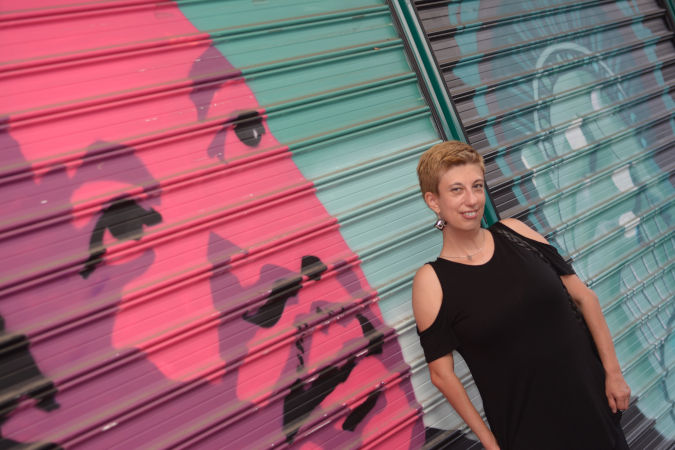In the words of Milesa Milinkovic: “We need to be supportive in activism for the rights of women with disabilities”
Date:

“I worry that in Serbia issues involving women with disabilities are rarely researched or discussed in gender equality conferences. We are stuck on accessibility issues, although larger gender equality concerns apply to women with disabilities. Even though a few topics like reproductive health and violence against women with disabilities are included in conferences, too many important challenges are neglected. For example, conferences rarely examine how women with disabilities are affected by basic issues like financial support, education, employment, partner relationships, sexual orientation, parenthood, cultural participation or leading an independent life.
That’s why we like to call our Seize the Film Festival, a “festival that changes perspective.” We show the potential of women with disabilities, and their challenges, and through our Film Caravan, we spread the Festival and its messages throughout Serbia.
Although the Seize the Film Festival is about disability, we illustrate the multiple vulnerabilities and forms of discrimination faced by women with disabilities. Because issues of women with disabilities are blurred in the feminist movement and so-called disability movement, we try to bring visibility through films, panel discussions, performances and exhibitions. This year, a quarter of the films are about women with disabilities. They highlight their achievements and tackle issues they face, like violence, rape, abortions, sexuality.
Pregnant women in Serbia face pressure to have expensive prenatal analysis and to abort babies with disabilities, even though they may not want to. We are trying to send the message that the life of people with disabilities is not a priori an unhappy one, and that quality of life does not depend necessarily on the disability but on the social system. The Festival is also significant because we provide knowledge and support to mothers of children with disabilities.
After observing young activists with disabilities, I believe that they are not fully aware of what human rights and equality really mean. Generally speaking, in Serbia we are grateful if we have basic human rights and if our basic life needs are satisfied. But there is more to life than that: Individuals and the state must do more! We need to be supportive and united in activism for the rights of women with disabilities, pushing for laws and conventions that guarantee equal opportunity for everyone are enacted and followed and regulations adopted.
Because Serbia is a deeply rooted patriarchal society and full equality is missing, we need mechanisms to ensure that women in every field are protected and supported.
At the end of the day, individuals make up the state and society. Their personal beliefs and prejudices affect which regulations and laws are enacted and carried out and how much they’re applied. Through education and the media, attitudes about equality can change.
That’s why I hope that next year’s Beijing +25 Regional Review in Geneva will shed more light on women with disabilities.”

This story is part of the regional media campaign “12 voices, 12 journeys, 12 women from 12 Europe and Central Asia countries”. Passionate about gender equality and women`s rights, they explore aspects of the 12 critical areas of the Beijing Platform for Action: poverty; education and training; health; violence; armed conflict; economy; power and decision-making; institutional mechanisms; human rights; media; environment; and the girl child. On the eve of 2020 and the 25th anniversary of the 1995 Beijing Declaration and Platform for Action, these 12 women are reimagining economies, societies and political systems to achieve gender equality. Imagine a world where gender equality is the norm. These women do.